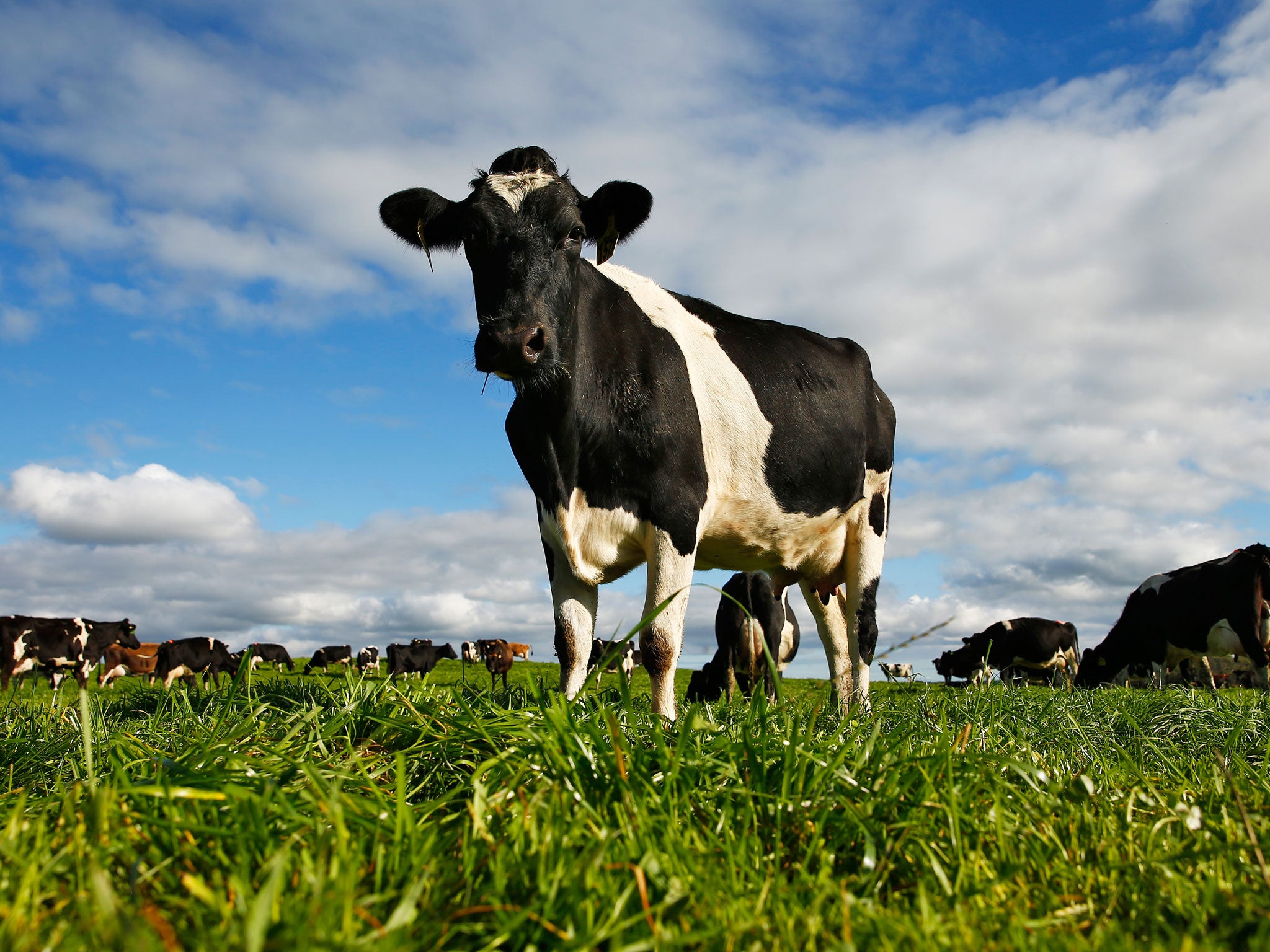The Independent's journalism is supported by our readers. When you purchase through links on our site, we may earn commission.
Cows have 'remarkable' ability to fight HIV and could hold clue to vaccine, say scientists
The findings are 'a significant step forward', says the US National Institutes of Health

Your support helps us to tell the story
From reproductive rights to climate change to Big Tech, The Independent is on the ground when the story is developing. Whether it's investigating the financials of Elon Musk's pro-Trump PAC or producing our latest documentary, 'The A Word', which shines a light on the American women fighting for reproductive rights, we know how important it is to parse out the facts from the messaging.
At such a critical moment in US history, we need reporters on the ground. Your donation allows us to keep sending journalists to speak to both sides of the story.
The Independent is trusted by Americans across the entire political spectrum. And unlike many other quality news outlets, we choose not to lock Americans out of our reporting and analysis with paywalls. We believe quality journalism should be available to everyone, paid for by those who can afford it.
Your support makes all the difference.Cows have a "remarkable" ability to fight HIV, according to a new study that researchers say could help develop a vaccine for humans.
The animals' powerful immune systems rapidly produce special antibodies that neutralise the virus, scientists found.
Only 10 to 20 per cent of humans with HIV naturally develop the "broadly neutralising antibodies" (bNAbs) and those who do, only begin generating them about two years after infection, by which time the virus has mutated.
But researchers found that cattle injected with HIV proteins developed the immune response within weeks. All four calves tested developed bNAbs as quickly as 35 to 50 days.
It is the first time immunisation has reliably triggered the production of HIV-fighting antibodies in humans or animals.
The US National Institutes of Health said the findings were "a significant step forward".
Director Anthony Fauc said: “From the early days of the epidemic, we have recognised that HIV is very good at evading immunity, so exceptional immune systems that naturally produce broadly neutralising antibodies to HIV are of great interest - whether they belong to humans or cattle."
Cows do not get HIV and bovine antibodies are unsuitable for clinical treatment for humans in their current form. But scientists said the study could help to steer the development of a vaccine.
"A minority of people living with HIV produce bNAbs, but only after a significant period of infection, at which point virus in their body has already evolved to resist these defences,” said Dennis Burton, a lead author of the study and a scientific director at the Scripps Research Institute.
“The potent responses in this study are remarkable because cattle seem to produce bNAbs in a relatively short amount of time. Unlike human antibodies, cattle antibodies are more likely to bear unique features and gain an edge over complicated HIV immunogens.”
One theory links the more powerful antibodies produced by cows to their extensive gastrointestinal systems, which comprise of multi-chambered stomachs populated by plentiful bacteria to help break drown tough grasses.
The bacteria increases the risk of infection, requiring a mechanism for producing potent antibodies.
Researchers could explore to mimic the effect of the potent antibodies or modify them to develop vaccines and treatments for HIV.
“HIV is a human virus but researchers can certainly learn from immune responses across the animal kingdom," said Devin Sok, a study leader and director of antibody discovery and development at the International AIDS Vaccine Initiative.
Researchers at Texas A&M University were also involved in the study, published in the journal Nature.
Join our commenting forum
Join thought-provoking conversations, follow other Independent readers and see their replies
Comments